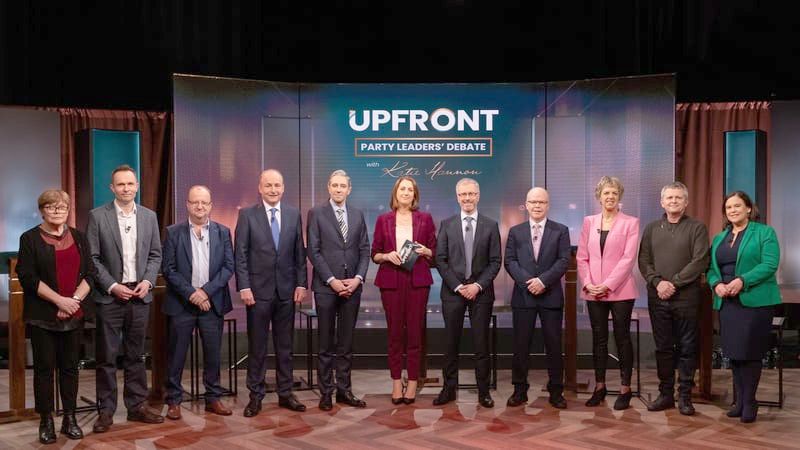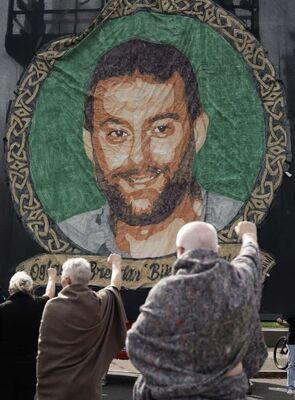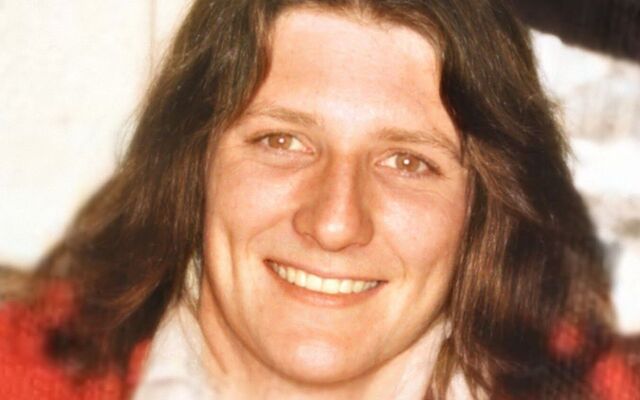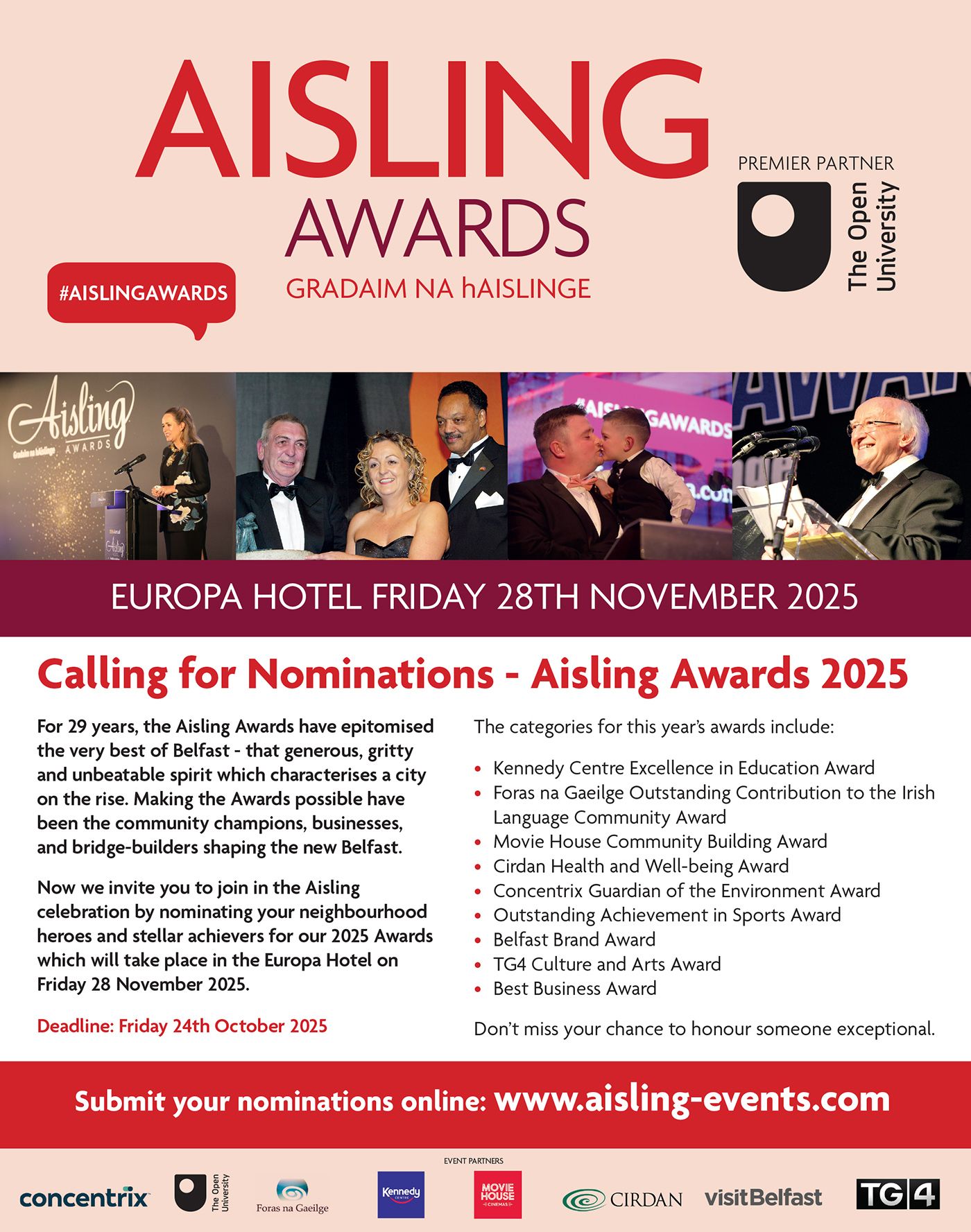I HAVE been doing a wee bit of canvassing in the General Election in the South. The response has been positive. There are clearly some who see election campaigns, including this one, as opportunities to write Sinn Féin’s obituary. Sorry to disappoint.
Like all parties fighting elections, there will be moments of gain and moments of pain. That is in the nature of electoral politics especially in volatile times. However, if your political ideology and the leadership’s connection with the base is strong then all challenges can be overcome. That’s one of Sinn Féin’s strengths.
There is clearly a desire in the South for fundamental change. The challenge for republicans is to persuade increasing numbers of people across this island who strongly desire progressive social change that Sinn Féin is the vehicle to assist that process.
These citizens want and deserve an Ireland that embraces equality and inclusivity for all citizens. They were a significant force in referenda which secured the right to equal marriage and bodily autonomy for Irish women. They are among the change makers behind the demonstrations against the genocide in Gaza and Lebanon. They will also be crucial in the unity referendums provided for in the Good Friday Agreement.
There are others who sow fear and division. They seek to exploit the anger of those disadvantaged people who have been failed by the state. Sinn Féin has firmly rejected this divisive agenda.
I learned a long time ago that building support means engaging with citizens and with communities. Progressive politics needs to be about empowering citizens. Public services need to be provided in partnership with the public in an open and transparent citizen-centred way. So too with the need to move toward Irish unity. Sinn Féin is committed to bringing this about. But we are not on our own. There are lots of United Irelanders out there.
For example, in July the Oireachtas Joint Committee on the implementation of the Good Friday Agreement published a landmark report on unity. It called for a whole-of-government approach, led by the Department of An Taoiseach. The Committee called on the Irish government to immediately begin planning for the unity referendums on constitutional change.
The then Taoiseach Simon Harris ignored the report. So did An Tánaiste Micheál Martin. Neither of these men are United Irelanders. We need to elect a Taoiseach – a woman – who is.
This election is an opportunity for republicans to match the local and national, the social and economic, with an all-island approach. It is time to build a society where the needs of working people and their dependents are prioritised, where housing, health and other public services are accessible, and where everyone has a real stake in the future.
It is also time to take decisive steps toward the reunification of our country. As James Connolly said, it’s time for the re-conquest. Sinn Féin has a plan to bring this about. A plan that will promote constitutional, legislative and political change. A Sinn Féin-led government will engage positively with the British government to set the date for the unity referendums. We will appoint a Minister of State for reunification; produce a government Green Paper in the first 100 days setting out our vision for a new and united Ireland; initiate a diplomatic offensive to promote unity through international forums, including the United Nations and the European Union.
We will draw on the resources and energy of our diaspora. A Sinn Fein-led government will also establish a Citizens’ Assembly or Assemblies on our constitutional future.
The choice in this election is crystal-clear: Another government led by Fine Gael and Fianna Fáil, in power now one way or the other for a century.
Or a new government led by Sinn Féin.
Richard and me: Another year
RICHARD is seventy-two. He reached that lofty age on Sunday. If he lasts for a few more months he will have lived longer than any of his ancestors in his branch of the historic Clann McAuley. That’s quite an achievement. Congratulations, RG. I hope you live forever.
Richard has been my leader for almost fifty years now. We first met in the Cages of Long Kesh in the mid-1970s. He was in Cage 12, I was in Cage 11. He was the PRO for the sentenced republican prisoners. I was doing bits and pieces of writing for Republican News and other publications. So everything I wrote I had to send to Richard for clearance. Contrary to his cuddly, easy-going image, Richard was extremely strict. He still is. So some of my more fanciful flights of fancy never got past his centrist and censorist eye.
Every week I dispatched my proposed drafts to him by ‘pigeon’. A pigeon was a well-tied snout (tobacco) tin containing a copy of my musings and a few pebbles for ballast. We hurled our pigeons from cage to cage. This was a line of communication that the screws could not penetrate. If you were a good thrower, that is.
Occasionally Richard would order me out to the wire to give me my instructions or to explain the PR line to me. He was very good at his job. I often wondered what the prison authorities thought of prisoners having a PRO. One English prison officer confided in me one day that he never came across a prison like Long Kesh. He was right. There was no other prison like Long Kesh.
LANDMARK: Richard McAuley with one of the cast of characters from his life's drama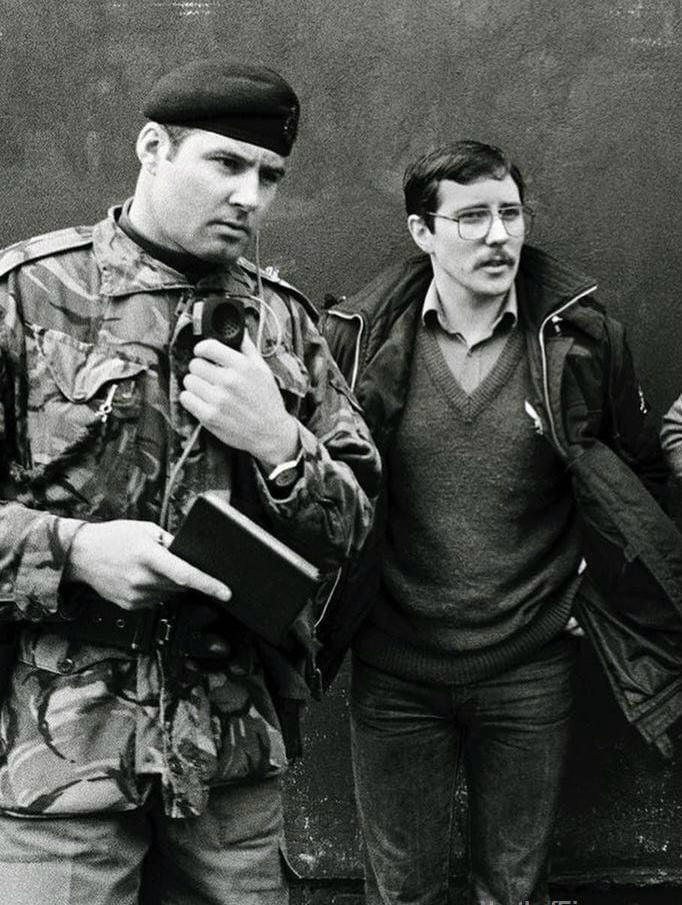
Later when we left there I started working for Richard on the outside. He remains my boss to this day. In between times he also became a good family man, a father, a grandfather and a great-grandfather. He loves music. His phone. Films. Kindle. Sci-fi fiction. Talking.
He is a workhorse for the republican struggle. A great researcher. A fine writer and a reliable source of knowledge, advice – usually good advice – and he has a shrewd political brain. Most of the time.
He is also one of the good guys. Positive and dependable. Usually good-humoured. He and I were exiled in Dublin when I was a TD,for two Dáil terms. We shared living quarters. A bit like the Odd Couple. We also travelled the world making allies for Irish freedom and supporting other struggles.
So I am pleased to call Richard my friend and to wish him a hearty Lá breithe shona.
Don’t let the old man in, mo chara.
Language is part of Israel hate
THROUGHOUT Israel’s genocidal war on the Palestinians, countless social media posts by Israeli politicians, officials and its occupying forces have highlighted the racism that underpins Zionism and that is being used to dehumanise the Palestinian people.
The use of the language of hate is an integral part of Israel’s assault on Gaza, the West Bank and now Lebanon. Israeli government ministers and their soldiers regularly use abusive language that labels Palestinians as animals, rats and snakes, as well as primitive and immoral. In this way they seek to justify their war crimes.
Throughout history, monarchies, dictatorships, empires and states have employed such language to defeat those they wish to conquer. The Irish people have endured this approach by English governments for nine centuries. We were the barbarians who needed to be civilised. We were the ape-like creatures who could be left to die from starvation in An Gorta Mór or who were forced in our millions to emigrate to places where No Irish Need Apply.
Prior to and during World War Two the Nazis used language to demean and humiliate Jews, gypsies and gay people, those with disabilities and others they wished to torture, use as slave labour, imprison in concentration camps and then to exterminate. They were sub-human, rats, beasts. Not people.
NAZI: Joseph Goebbels was the master of hate speech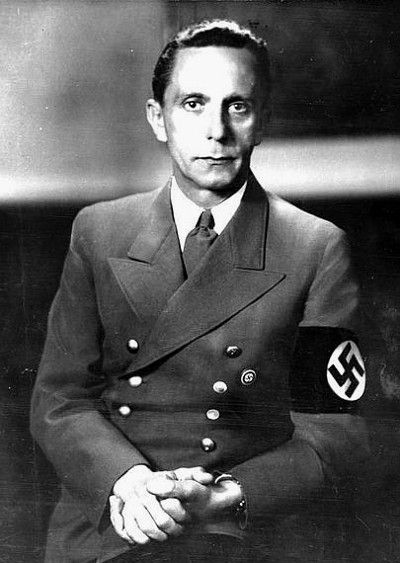
In our time and place we have witnessed the use of the language of hate to demonise and dehumanise northern nationalists. That language was employed by the Unionist regime at Stormont and by successive British governments as they applied the tactics of collusion, torture, internment and shoot-to-kill.
We who were on the receiving end of that also need to mind our language. Terms like Orangies or Huns should have no place in our vocabulary. So we have to oppose the language of hate and dehumanisation in our own place.
We must also reject and stand firm against it when used against the Palestinians by the Israeli state or its western backers. The incoming new Irish government has a responsibility to lead by example in Europe. This means moving immediately to enact the Occupied Territories Bill and demand that all EU member states initiate sanctions against Israel.
